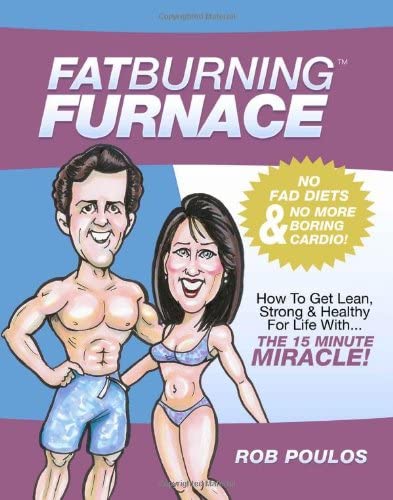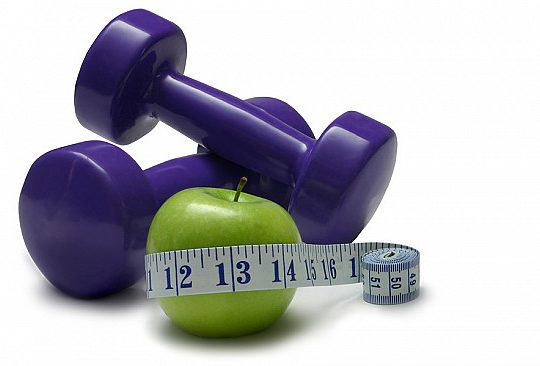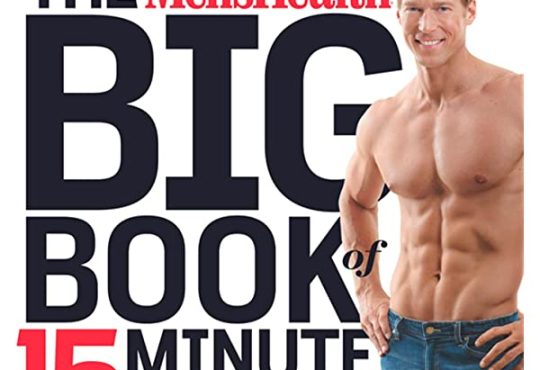
How to Maintain a Healthy Weight – My True Fat Burning Furnace Story
If you are at a weight that you are happy with and that is healthy and comfortable, how do you go about maintaining it? Sometimes keeping the weight off is easier said than done. Taking action and making it happen is often a different thing. So, if you are wanting to keep a healthy weight, what should you be putting into practice, and what guidance should you be following? Taking time out now to plan what you will do will cause you unnecessary stress later down the line and will ensure that the weight does not end up creeping back on.
Create and Stick to Meal Plans
Whether you are at home most of the day or you are out and about a lot of the time, it is important to have meal plans in place. Having meal plans in place allows you to see what you are eating and when. When you create a meal plan for the day ahead, or even for the week ahead, you can then truly take control of your diet, and you can balance what you are eating. If you do not have a meal plan in place, then you could end up cooking meals that are high in fat or high in calories. When you follow a meal plan, you can quickly see areas where you can improve your diet, and you can also see those occasions where you can sneak the odd treat in.
Have Breakfast Every Morning
Breakfast really is the most important meal of the day. Without breakfast, you can often find yourself starting on the backfoot. Breakfast gives you the energy and the nutrition you need to get started with your day. If you skip breakfast, then your body may go into survival mode. It might start burning up the reserve calories that it has stored. You are gaining nothing by skipping breakfast in the morning, and if anything, you are actually doing your body more harm than good. When you skip breakfast, and you get peckish later on in the morning, you will actually find yourself reaching for snacks (and more often than not, these snacks are unhealthy or full of sugar). Breakfast helps to give you a balance, especially early on in the day, so never skip breakfast, especially when you are trying to maintain a healthy weight.
Embrace a New Workout Plan
As you get older, you will have to work out that little bit harder. Your current workout routine (if you have one) might not be working for you anymore, and you may be struggling to see the impact. Switching up your exercise and workout plan will give your body the push it needs. If you do not workout, then you will struggle to maintain a healthy weight simply because your body needs that extra bit of help as you get older. Even if you are busy in your everyday life, you still need to undertake some form of workout or exercise to ensure that you are burning off any excess or unwanted calories.
Stop Snacking
Snacking is bad for you, your health, and your waistline. Snacks are so convenient, and they are so easy to come by, and this is where your problem lies. Avoiding temptation and stopping snacking can be something that is very hard to do. Sugary snacks can give you an energy boost when you need it in the day, but unfortunately, this sugar has to go somewhere, and unless it is being burnt off with an intense workout, it will be going straight onto your waistline. Snacking is a habit that is very hard to break, but by making the first steps, you are moving in the right direction. Start by removing all of the snacks from your home, and then remove all temptations from other places, such as your car or your place of work. Once temptation is removed, you then have a better shot at stopping snacking for good.
Don’t Eat Before Bed
Your eating times matter just as much as the food that you eat. If you are eating late on into the day, and you are perhaps eating right before bed, then you need to stop. Eating late on in the day is not good because you do not give your body time to process or digest what you have consumed. If you do not give your body the time it needs to process and digest food, then ultimately, this food will get stored, and your weight will slowly but surely increase. Ideally, your body should not be having any food or drink after 8 pm, simply because at this time of the night, you are usually less active, and that means you will struggle to shift the extra calories.
Keep a Food Log
Even when you have a meal plan, it is still beneficial to keep a food log. A food log will keep track of everything that you are eating and drinking. Food logs are ideal because they can show you just what you are consuming (perhaps things you didn’t even realize you were). When you can physically see what you have been eating, you can begin to make changes. Sometimes seeing things first-hand in your own writing can give you the spark that you need to start taking control of your weight and the food that you eat.
Lose The Stress
Stress can cause you to eat foods that you do not want to or even need to. When you are stressed, you will most likely reach for those foods that are not beneficial for you. For example, sugary drinks, chocolate, and other sugary snacks can all be appealing, even if they are giving you an instant fix. When you are stressed, you need to try and shift your thoughts and your attention. Speaking to other people often helps as well because a problem shared is often a problem halved. When you are not as stressed, your whole mindset changes, and you are no longer looking for foods to just make you feel good.
Shift Your Focus and Attention
You can get stuck in a rut within your life, and this can then have a knock-on effect. Making a change and perhaps shifting your focus and attention to a new job or career could give you the push that you need to embrace a healthier lifestyle and way of life. For example, you could study a Psychiatric Mental Health Nurse Practitioner Program and embark on a new nursing career, or you could look at training to become a personal trainer. Sometimes a fresh start or a big change can help you see where you are going wrong. When you know just where you are going wrong and making mistakes, you can then shift your attention onto correction.
Reduce Your Portion Sizes
How much you eat in one sitting is just as important as what you eat. If you are consuming large portion sizes, then you need to cut down as soon as you can. Eating a large portion size every so often will not do you any harm, but if you are doing this at every mealtime, you will soon notice the calories creeping up, which means that your weight will gradually increase. To reduce your portion sizes, think about how much you need and not how much you think you need or want. Quite often, you can pile a plate high with food, only to realize you needed a third of what was on your plate.
Avoid Sugary Drinks
Sugary drinks are everywhere; even those low-fat or diet drinks contain some amount of sugar. After you exercise or workout, you need to avoid sports drinks because they are full of sugar. Sugary drinks can often contain a couple of teaspoons of sugar, and this is not something that you need in your diet at any stage. If you are craving a sugary drink after a workout, then replace this with still or sparkling water.
Drink Plenty of Water
Water is fantastic, it is pure, it is clean, and the best thing is that still freshwater (with nothing added) is free from sugar and free from calories. When you drink plenty of water, you ensure that you are flushing everything through your body as efficiently as possible. Water can leave you feeling fuller, and it can help to take away those cravings that you have. You may also want to try consuming ice cubes too (especially when you have cravings for junk food or sweet treats).
Embrace a Plant-Based Diet
Meat can be full of fat and unnecessary added salt. When you embrace a plant-based diet, you limit your intake of fish and meat, and you focus your attention on things such as lentils and chickpeas. Eating more plant-based products is beneficial because you are cutting down on the amount of processed food you are eating, and you are consuming food that is lower in calories and fat.




